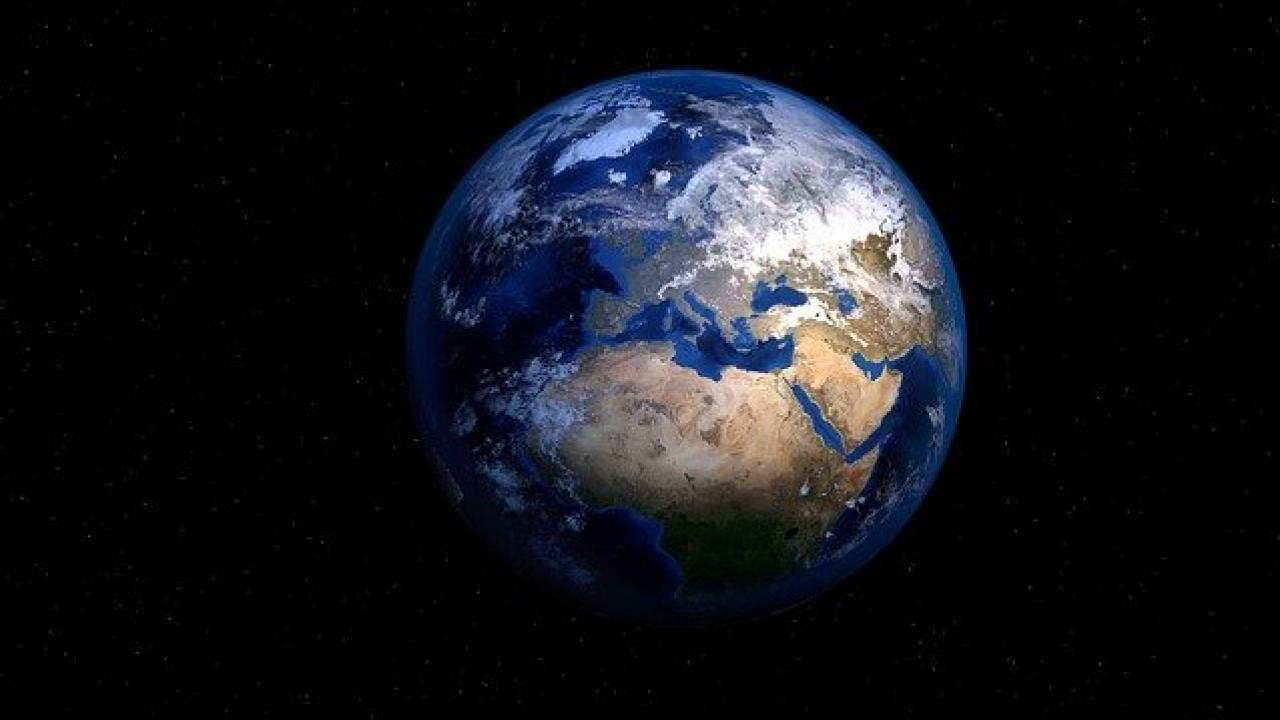
Climate scientists in ICTP's Earth System Physics section have long been involved in the work of understanding the Earth's climate and how it is changing. Their research has fed into the reports compiled by the Interngovernmental Panel on Climate Change, the UN organisation tasked with assessing the science of climate change. The conclusions of the reports are fundamentally important for negotiators and decision makers at major, international climate conferences, such as last year's COP26.
In honour of Earth Day 2022, ICTP is pleased to highlight several climate research projects by ESP scientists and students:
- The glaciers of the Alps are not immune to global warming, as evidenced in a paper co-authored by Filippo Giorgi, ICTP climatologist and head of the ESP section, published in the highly influential journal Climate Dynamics. “The results of this study indicate the inevitable destiny of Alpine glaciers to disappear, for all the various scenarios of increasing greenhouse gases in the atmosphere examined, even for the most optimistic ones,” says Giorgi. These vast expanses of ice represent an extremely important resource for European populations, as Giorgi underlines: “The disappearance of the glaciers would have enormous impacts on Alpine ecosystems and a massive drop in availability of water resources for human activities, especially in summer.” He warns: “This should therefore represent a great wake-up call for Europe in general and Italy in particular.” When asked what could be done, Giorgi replies: “The only effective way to contain this phenomenon is to contribute to the drop of greenhouse gas emissions into the atmosphere, in order to stabilize temperatures below the threshold established in the 2015 Paris Agreement.”
- ICTP Postgraduate Diploma Programme alumnus Mostafa Hamouda, class of 2017, published a paper in the distinguished journal Nature Climate Change that investigates the correlation between two atmospheric patterns, consisting of air pressure fluctuations, known as the North Atlantic Oscillation and Arctic Oscillation. These are responsible for regulating the amount of snow and cold coming into Europe and North America, as well as many other climatic events. Nowadays these two phenomena are extremely correlated, but the paper's results show how this key planetary connection breaks down as the planet warms. “It's a great way to point out that with climate change, not only the averages of the patterns we know change, but also the patterns,” explains Mostafa.
- The consequences of global warming are already happening, and impacting the well-being of residents of the most-affected regions, among them West Africa. “West Africa is particularly vulnerable to climate change because of its high dependency on climate-related activities in most of its socio-economic sectors and its low adaptive capacity,” says Olivia Vashti Ayim, a Ghanaian alumna of the ICTP Diploma Programme who is at the start of her career. “The agriculture, fishing, transportation, and health sectors are all being highly affected by climate change,” she explains. One of the reasons she wants to be a climate scientist is because she saw firsthand the effects of this dramatic phenomenon. Her Diploma thesis was on “finding an efficient way to predict the beginnings of the monsoon season in West Africa.” With the help of ICTP, Olivia is now building a brilliant career in her field.
- Pollutant emissions are not only responsible for accelerating global warming, but they also represent a serious threat to our health, a threat that has been heightened during the pandemic. Results from a paper co-authored by Andrea Pozzer, a former ICTP ESP scientist, show how a consistent percentage of COVID-19 deaths worldwide can be attributed to air pollution. The paper’s findings, published in October 2020 in the journal Cardiovascular Research, do not demonstrate that a direct cause-effect relationship between air pollution and COVID-19 deaths exists, but confirm an indirect effect: “Our estimates show the importance of pollution on fatal health outcomes of the virus infection, i.e. by aggravating co-morbidities [other health conditions],” explains Pozzer. While diverse factors affect the actual mortalities, “we can clearly distinguish the contribution of air pollution to COVID-19 mortality,” the authors state. The paper concludes with a warning for decision makers: “The COVID-19 pandemic ends with the vaccination of the population or with herd immunity through extensive infection. However, there are no vaccines against poor air quality and climate change.”
The effort against climate change cannot proceed without global sustainable economic development, access to education, without work towards reaching peace, gender equality and fairer distribution of resources worldwide. In order to reach this state of global wellness, the United Nations have drawn up 17 sustainable development goals to reach by 2030, called the 2030 Agenda. Read how ICTP, as a UN-sponsored institute, is doing its share to meet all 17 of these goals.
Related Links:
- ESP Postdoctoral Fellowship Available: apply by the 31 July 2022 deadline.
- Europe’s climate in 2050: A video presents the results of climate change research: an important paper led by ICTP's climate scientist Erika Coppola has served as one of the main sources for the production of a video by the European Climate Prediction project (EUCP), aiming at presenting to the general public the effects that climate change will have on Europe by 2050 if no policies for reduction in CO2 emission would be adopted. Two ESP post-docs, Rita Nogherotto and James Ciarlò, have also contributed to the realization of the video.
- Climate Science at COP26: ICTP climatologist Erika Coppola at Glasgow conference
- Weather and Climate: From Fundamentals to Applications: An ICTP/UniTN/UniAQ Joint International Seminar Series open to all













